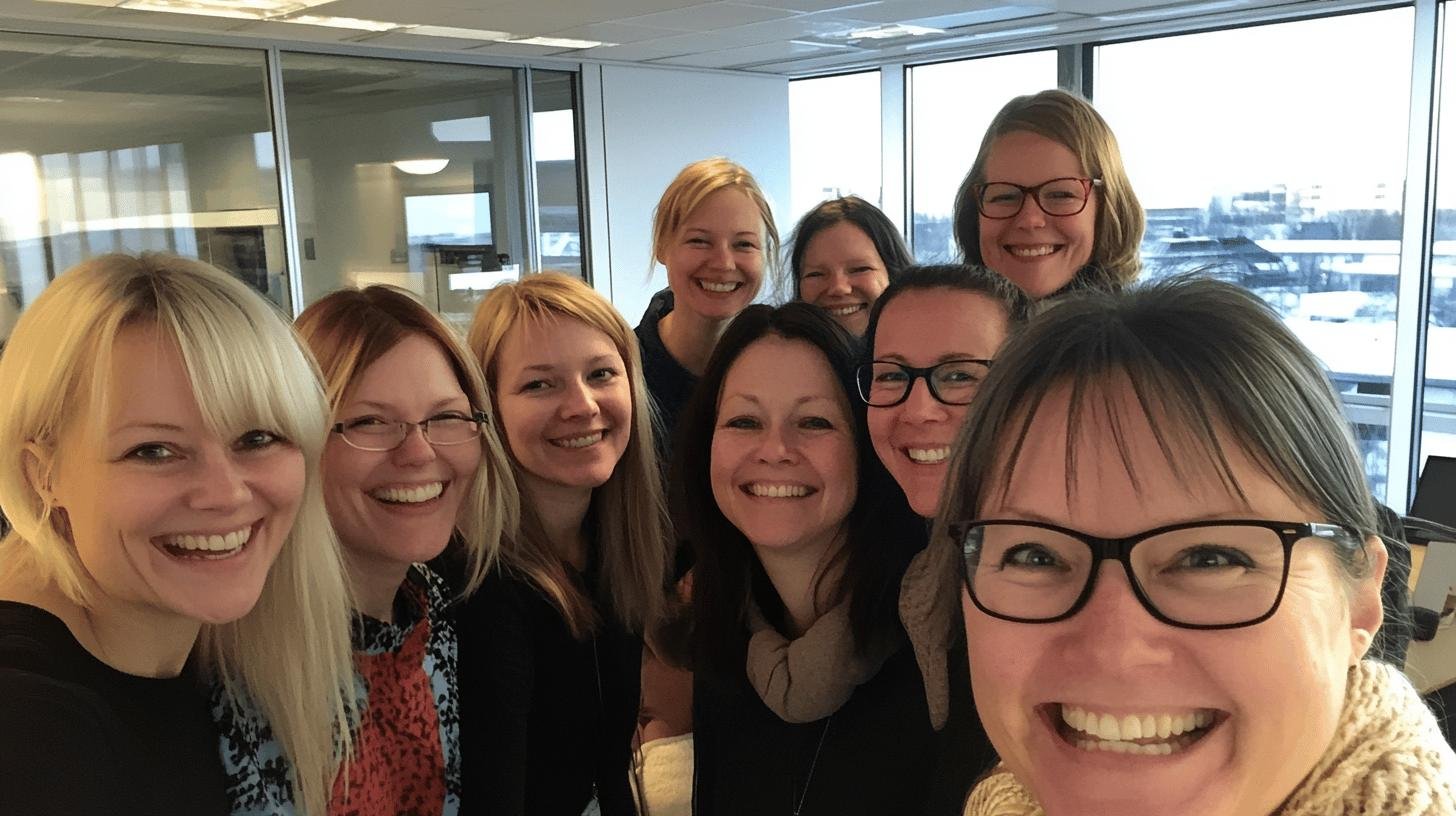TL;DR:
- Top Countries for Work-Life Balance:
- New Zealand: 79.35
- Spain: 75.55
- France: 75.34 (35-hour work week)
- Australia: 73.71
- Denmark: 73.67 (37-hour work week, flexible schedules)
- Quality of Life and Happiness:
- Finland: Over 5.5 hours of leisure daily
- Sweden: High quality of life, generous parental leave
- Iceland: Family and personal pursuits focus
- Government Policies:
- France: 35-hour work week
- Australia: Generous vacation
- Norway: Flexible work arrangements
- Expat Highlights:
- Netherlands: High living standards, excellent healthcare
- Germany: Productivity with generous vacation
- Spain: Leisure emphasis (daily siestas)
Ever felt your life is more work than play? You’re not alone. Many people are searching for that perfect balance between the job grind and personal time. But where do you find it? Some countries are getting it right, offering the ideal mix of a supportive work environment and personal time. Imagine living where leisure isn’t a luxury but a daily norm.
In this article, you’ll explore which country is best for work-life balance, with a rundown of the top countries for achieving the perfect blend of professional success and personal fulfillment. Ready to see where you should consider living next?
Top Countries for Work-Life Balance: A Comprehensive Comparison
Work-life balance means having enough time for work, family, and leisure without feeling stressed. Countries rank based on how well they provide this balance, considering factors like work hours, vacation, and attitudes towards work. These rankings help people find places to enjoy both professional and personal life.
Which countries excel in work-life balance? New Zealand tops the list with a score of 79.35, known for a supportive work environment and scenic beauty. Spain follows with a 75.55 score, offering a laid-back lifestyle and daily siestas. France, scoring 75.34, stands out with its 35-hour work week. Australia and Denmark complete the top five, scoring 73.71 and 73.67. These countries focus on ensuring citizens enjoy personal lives as much as their careers.
Why do these rankings matter for expats or job seekers? Understanding these scores can help in deciding where to live and work. High-ranking countries often have family-friendly policies, generous leave, and support employee well-being. These aspects improve life satisfaction and reduce work-related stress. For those thinking of moving abroad, these rankings show places where achieving a balanced lifestyle is possible.
| Country | Index Score |
|---|---|
| New Zealand | 79.35 |
| Spain | 75.55 |
| France | 75.34 |
| Australia | 73.71 |
| Denmark | 73.67 |
Work Culture and Average Working Hours in Leading Nations

Why is work culture important for balance? It affects how people handle time and stress. A supportive work culture values flexibility and personal time, helping employees feel satisfied and less stressed. Countries with strong work cultures usually have people thriving at work and in personal life.
What are the average working hours in Scandinavian countries? Denmark and Norway are known for reasonable working hours. Denmark, with its 37-hour workweek and flexible schedules, sets an example. Norway also offers flexible work environments, focusing on family and personal well-being. These countries promote not just fewer hours but meaningful and productive work conditions.
How do these factors contribute to work-life harmony? Prioritizing flexibility and family time, like in Denmark and Norway, allows individuals to focus on what matters outside work. This reduces stress and boosts job satisfaction. The Netherlands and its part-time opportunities further enhance balance, offering a tailored work-life experience.
- Denmark
- Norway
- Netherlands
- Finland
- Iceland
Quality of Life and Happiness Index in Top Work-Life Balance Countries
Why is quality of life crucial? It affects overall happiness and satisfaction. The happiness index measures contentment considering health, income, and social support. Countries with high happiness indices often excel in work-life balance, enhancing life satisfaction for citizens.
Which countries excel in quality of life and happiness? Finland stands out, offering over 5.5 hours of leisure daily, boosting happiness. Sweden is notable for high quality of life and generous parental leave, supporting family well-being. Iceland ranks globally, focusing on family and personal pursuits, contributing to a happy populace. These nations prioritize personal time and family connections, leading to high happiness.
How do these aspects affect life satisfaction? Countries emphasizing leisure and personal pursuits create environments where people feel fulfilled. This reduces stress and increases happiness, contributing to a balanced lifestyle. By ensuring leisure time and supportive family policies, these nations enable greater life satisfaction.
- Finland
- Sweden
- Iceland
- Switzerland
- Norway
Government Policies Promoting Work-Life Balance

How do governments influence work-life balance? By implementing family-friendly and work policies, governments can help citizens balance work and personal lives. These include regulated work hours, vacation, and parental leave, reducing stress and enhancing life quality. Countries prioritizing these policies report higher happiness and satisfaction among citizens.
What specific policies stand out in promoting work-life balance? France leads with a policy limiting work weeks to 35 hours, ensuring ample personal time. Australia emphasizes balance with generous vacation, letting workers recharge. Norway supports citizens with ample leave and flexible work arrangements, allowing personalized schedules. These benefit individuals and create a productive, content workforce.
What does the future hold for work-life balance policies? As more countries see the benefits of supportive environments, they may adopt similar family-friendly policies. Advances in tech and cultural shifts could influence these policies, encouraging governments to prioritize employee well-being over traditional metrics. This trend is promising for job seekers and expatriates.
Impact of National Policies on Employee Well-Being
How do these policies affect employees? Supportive government policies lead to higher satisfaction and productivity. Offering personal time and flexible options reduces stress, resulting in better performance and loyalty. These benefits underscore the need for government support in cultivating a balanced workforce.
Expat Experiences and Testimonials in Ideal Work-Life Balance Countries
What do expatriates say about living in countries with great work-life balance? In the Netherlands, expats praise the high living standards and excellent healthcare. It’s known for a supportive culture that values both professional and personal time, enabling a balanced life. Germany is favored for combining productivity with generous vacation. Expats appreciate its structured environment allowing personal pursuits and family time.
How does Spain excel in leisure and lifestyle? Spain is celebrated for emphasizing leisure, especially through daily siestas. This practice offers a unique work-life balance perspective, focusing on relaxation and social interaction. Expats in Spain enjoy its slower pace, promoting meaningful connections and stress reduction. The work and leisure approach fosters a community-oriented atmosphere, enhancing life satisfaction.
- Access to quality healthcare
- Generous vacation and leave policies
- Focus on personal and family time
Final Words
Finding the country best for work-life balance can transform both personal and professional life. New Zealand leads, thanks to its high index score, closely followed by Spain and France.
Scandinavian nations set the benchmark with flexible working hours and a culture that values family. These countries excel in happiness and quality of life indices, ensuring citizens are satisfied. Policies supporting work-life harmony are impactful, with expatriates affirming exceptional living standards.
Embracing this balance enhances well-being and enriches everyday life.
FAQ
Which country has the best work-life balance in the world?
According to recent rankings, New Zealand tops the list for work-life balance with an index score of 79.35.
What are the top 10 countries with the best work-life balance?
The top countries for work-life balance include New Zealand, Spain, France, Australia, and Denmark, among others.
Which countries in Europe offer the best work-life balance?
In Europe, Spain, France, and Denmark are known for excellent work-life balance.
What countries have the best work-life balance in Asia?
Specific rankings for Asian countries aren’t detailed, but traditionally developed nations like Japan and South Korea are working towards better work-life balance.
Which country is the best to work and live in?
Factors include work-life balance, healthcare quality, and benefits. New Zealand and Denmark often rank highly.
Which country has the best work benefits?
Norway is renowned for generous leave policies and flexible work arrangements.
Where does America rank in work-life balance?
America is typically lower compared to countries like New Zealand or Spain, often due to longer working hours and fewer vacation days.
What government policies promote work-life balance?
Countries like Norway and France focus on flexible work hours, short workweeks, and parental leave to enhance work-life balance.
